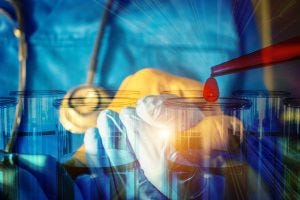
MaxCyte says its clinically validated electroporation technology will help increase efficiency and improve yield of Allogene’s allogeneic CAR-T therapy candidates.
Pfizer-backed biotech Allogene launched in 2018 with a focus on developing allogeneic, or off-the-shelf, chimeric antigen receptor (CAR) T-cell therapies.
To achieve this, the firm has regularly stressed the importance of manufacturing, devoting “considerable time and resources” to the process. Now the firm has inked a deal to use MaxCyte’s ExPERT platform to develop and advance its candidates through to commercialization.

Image: iStock/CIPhotos
“MaxCyte’s ExPERT Platform is an electroporation technology capable of high-performance delivery into multiple cell types including primary cells, stem cells, and cell lines with minimal disturbance resulting in efficiencies routinely at greater than 90%,” a spokesperson from MaxCyte told this publication.
The electroporation is based on the reversible permeability of membranes in the presence of an electrical field, creating a universal transfection technology the firm says is capable of high-performance delivery of virtually any molecule, including DNA, RNA, proteins and cell lysates with minimal cell disturbance.
“The platform is clinically validated with an established regulatory path supported by an FDA Master File, closed, cGMP compliant, and scalable.”
Like all MaxCyte’s clinical and commercial licenses, Allogene is licensing the tech on a non-exclusive agreement within a defined field. MaxCyte will receive undisclosed development, approval and commercial milestones in addition to other licensing fees.
The added “technology and expertise allows Allogene to increase efficiency and improve yield, which is the critical component of Allogene’s AlloCAR T therapies,” the spokesperson said.
Autologous and allogeneic
The two commercialized CAR-T therapies – Novartis’ Kymriah (tisagenlecleucel) and Kite/Gilead’s Yescarta (axicabtagene ciloleucel) – are both autologous, meaning they are made using a patients’ own cells, which are genetically engineered and then reintroduced.
Such a process is personalized and difficult to scale-up in a traditional sense, and therefore expensive. Kymriah, for example, costs $475,000 to treat acute lymphoblastic leukemia. Allogene is attempting to overcome the limitations of autologous CAR T therapies by creating allogeneic CAR T cell therapies, or AlloCAR T, made from healthy donors.
These cells are isolated in a manufacturing facility, engineered to express CARs to recognize and destroy cancer cells, and modified using gene editing to limit an autoimmune response when given to a patient different than the donor. These therapies are then stored for off-the-shelf delivery to patients.
About the Author
You May Also Like

schedl_b_and_w.jpg?width=100&auto=webp&quality=80&disable=upscale)
schedl_b_and_w.jpg?width=400&auto=webp&quality=80&disable=upscale)



